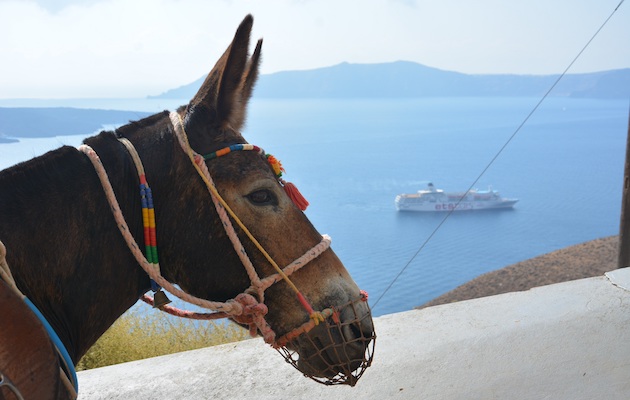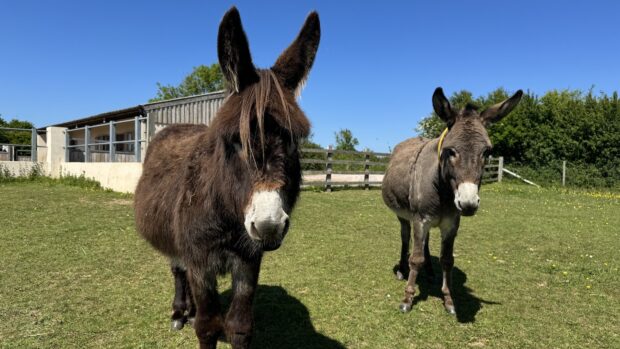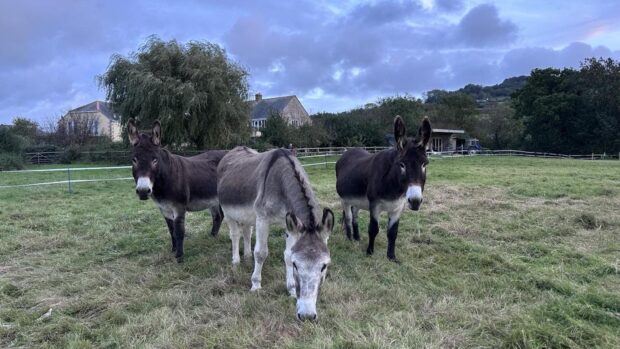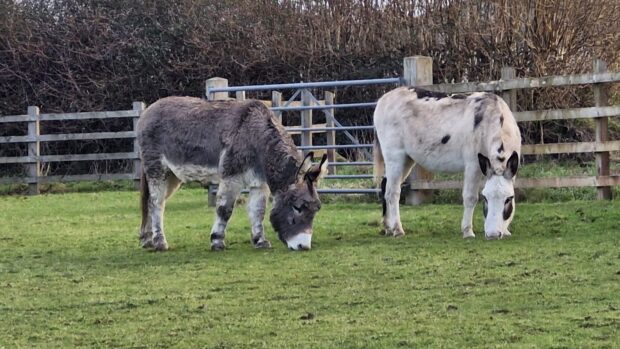A string of welfare complaints has led officials to impose weight limits on tourists taking donkey rides on the Greek island of Santorini.
The animals are one of only three modes of transport — alongside cable car or foot — available for visitors to climb the 1,300ft (400m), 600-step ascent from the port to the clifftop capital Fira.
After pressure from animal welfare groups over the summer, the Greek agriculture ministry has put forward legislation to stipulate that individuals weighing more than 100kg (15st7lb), or one-fifth of the donkey’s weight, will not be able to ride them.
The measure is expected to be ratified at the same time as Greece passes its pending equine passport and microchip laws.
The Donkey Sanctuary was among the charities to launch a campaign this year to pressure the island for change, after finding “exhausted donkeys and mules spending long days in the scorching sun, carrying tourists or heavy and harmful rubbish loads, with little to no water, food or shade.”
The organisation, alongside its partner Greek Animal Welfare Fund/Animal Action Hellas (GAWF), held talks with the Santorini mayor Anastasios-Nikolaos Zorsos and at the end of August, where he pledged to improve working conditions for the island’s equines.
A separate petition on the website change.org entitled “stop animal abuse of donkeys and horses in Santorini” was also signed by almost 109,000 people.
In line with the mayor’s promised changes, five key improvements are expected for the next holiday season. They include more shade, free-flowing water troughs, a “revised and simplified” code of practice for working equines and training sessions organised by the Donkey Sanctuary.
Responding to the proposed legislation, a spokesman for GAWF said the group was “delighted” to hear that the Greek Ministry of Rural Development and Food had “reasserted the need for a national level code of conduct for working equines”.
Continues below…

Overweight riders asked to dismount at show
The organising committee ruled that anyone deemed to be too heavy for their mount would be spoken to
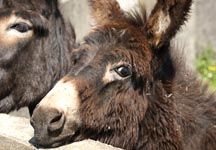
Welfare help for donkey ‘taxis’ on Greek island
The first fines for breaching an animal welfare code have been issued to donkey owners on the Greek island of

The rider weight debate and why it’s not fat-shaming: H&H responds
H&H responds to the latest news on a big issue for the equestrian industry
“We both welcome the continued efforts to impose limits on the maximum load a working mule, donkey or horse should carry,” he said.
Demand from tourists has meant more mules and donkeys have been imported from France to the island in recent years and there are currently around 300 based at Santorini’s port. In 2017, the Cycladic island attracted 2.4 million tourists of which more than 700,000 were from cruise ships.
For all the latest news analysis, competition reports, interviews, features and much more, don’t miss Horse & Hound magazine, on sale every Thursday.

